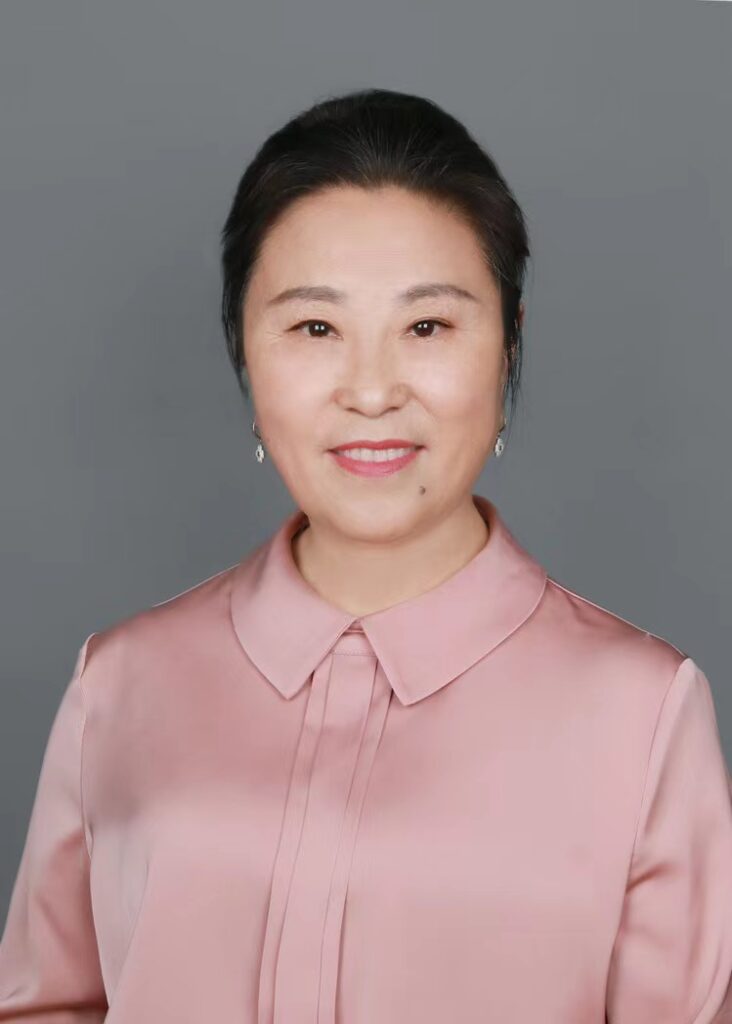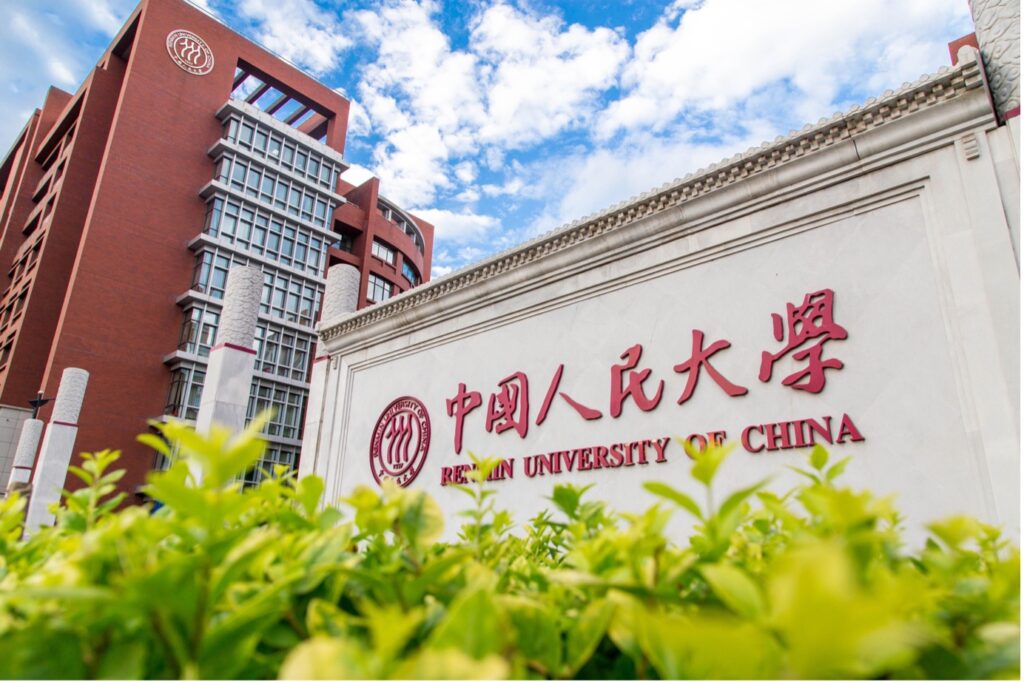
冯惠玲教授是管理学博士,博士生导师,现任职于中国人民大学数字人文研究中心。她曾担任中国人民大学常务副校长,现任中国档案学会副理事长。她的研究兴趣包括档案学、数字人文和档案教育。
1. 你如何定义数字人文?
定义是对事物内涵与外延的界定。数字人文的内涵,我认为可以简单地表述为数字与人文相结合的领域,其外延则有鲜明的开放性特征,无法也没有必要做出确切界定。一方面“数字”和“人文”都没有明确的边界,数字世界常变常新,人文世界宽广无边。如《周易》所言,“文明以止,人文也”,包含人类社会各种文化现象的“文明”皆为人文,足见其广阔。另一方面,“数字”和“人文”多种元素的多样化交织交融,又不断生成很多新现象新事物,聚集在数字人文的大帐篷之下,内容和形态更为丰富。随着数字人文的多方位发展,我们对其本质的认知将逐步加深,从对其内涵的抽象将更为科学精准成熟,至少目前,尽可能保持“数字人文”概念的开放性是合理且有益的。
2. 是什么让你开始对数字人文感兴趣的?
我的专业是档案学,档案学若干核心概念与数字人文的关联把我引进数字人文。一是“档案”概念,iSchools把数字人文作为发展方向之后,我从相关文献和学术活动中发现数字人文广泛使用“档案”(Archives)一词,与“档案学”中的“档案”概念有交叉有差异,让我看到了“档案”概念在新领域的新含义。二是“社会记忆”,它是档案的基本属性,也被历史、文学、哲学、艺术等人文学科所关注,纳入数字人文之中。三是 “档案资源开发”的数字化转型,其原理、路径、工具、方法、成果形式等与数字人文多有吻合,作为社会生活原始记录的档案是数字人文项目常用的优质资源。在这些概念、理论、方法的相遇中,我对数字人文产生了越来越浓厚的兴趣,走进了这个宽广且充满魅力的领域。
3. 可以给我们分享一个你参与的数字人文项目吗?
我们团队十余年来从事“数字记忆”的研究和建构,从2013年起搭建了“北京记忆”数字资源平台(http://www.bjjy.cn)。古都北京有3000多年建城史,近900年建都史,其厚重悠久的文化底蕴也逃不脱时间冲刷的流失,我们希望在数字世界尽可能真实地复现这个伟大城市的过往。“北京记忆”的基本架构是前站后库,“前站”是用网站群形式开展数字叙事,为每一个专题制作一个文化网站,以大量文献为基础,使用图文、视频、动画、建模、游戏、数据可视化等方法,生动呈现其历史脉络和面貌,相当于一部部数字专题史;“后库”是将有关文献资料建成多模态数据库,按照知识组织规范,通过搜集、加工、组织、存储等实现北京历史文化资源的聚合和智能检索。这是一个长期持续性项目,复合应用多种数字人文方法,目前已上线23个专题网站,并在此基础上开发了图书、数字出版物、数字藏品(NFT)、线下光影展、跨时空教学场景等多种衍生产品,前后吸引了数十名教师、数百名学生以及多家数字文化公司的参与,为穿越时空传承传播大型城市历史文化做了很多创新性探索。
4. 以及一个你喜欢的数字人文项目?
我所在的中国人民大学已经开展了数字人文本硕博三个层次的专业教育,为了给学生们提供丰富的学习资源,我们建设了多模态“数字人文案例库”,目前已输入近千个案例条目,260个优秀案例,其中很多项目我都很喜欢,比如中国历代人物传记资料库(China Biographical Database, CBDB)、“影谷”(THE VALLEY OF THE SHADOW)、“上海年华”(上海图书馆)、“文都时空”(南京大学)等等。我想介绍一个我和很多学生感兴趣的项目——都铎网络(The Tudor Network)。
这是一个由来自英国、德国不同大学、不同学术专长的研究人员合作开展的,基于英国国家档案馆收藏的15—16世纪都铎王朝时期12万封书信档案的数据分析项目,这些信件跨越近百年,涉及2万余人。该项目对全部书信内容做了文本挖掘,采用收信数、发信数、结点等多个指标进行相似度排序、整体趋势线分析、异常值分析等方法,显示每个人的通信对象、频度等特征,以及通信人之间的复杂关系,进而对书信内容加以分析,揭开了这些书信中的尘封历史。我们喜欢这个项目独特的历史价值和文献价值,项目团队唤醒了沉睡500多年的书信档案,对其中各种数据进行了可视化和科学严谨的分析,还原了一段鲜为人知的历史内幕,其中一些曲折离奇的史实令人惊叹。
Meet Professor Huiling Feng

Professor Huiling Feng, is a Doctor of Management and a doctoral supervisor based at the Digital Humanities Research Centre at Renmin University of China. She has served as the Executive Vice-President of Renmin University and is currently the Vice President of the Society of Chinese Archivists. Her research interests include archival science, digital humanities, and archival education.
1. How do you define Digital Humanities
A definition involves delineating the connotations and denotations of a concept. In my view, the connotation of Digital Humanities can be succinctly expressed as the field where digital technology and the humanities intersect. Its denotation, however, has a distinct characteristic of openness, making it neither necessary nor feasible to define it precisely. On the one hand, neither “digital” nor “humanities” has clear boundaries—the digital world is ever-changing, and the world of the humanities is vast and boundless. As the I Ching says, “civilization halts and becomes humanities,” indicating that “civilization,” encompassing various cultural phenomena of human society, is part of the humanities, showcasing its vastness. On the other hand, the diverse interweaving and merging of multiple elements from “digital” and “humanities” continuously generate new phenomena and new entities, all of which gather under the large tent of Digital Humanities, making its content and forms increasingly rich. As the multidimensional development of Digital Humanities continues, our understanding of its essence will gradually deepen, leading to a more scientifically accurate and mature abstraction of its connotation. At least for now, maintaining the openness of the concept of “Digital Humanities” is both reasonable and beneficial.
2. How did you become interested in DH?
My field of expertise is Archival Studies, and several core concepts in Archival Studies are closely related to Digital Humanities, which drew me into this field. First is the concept of “archives.” After iSchools adopted Digital Humanities as a development direction, I noticed through relevant literature and academic activities that the term “archives” (Archives) is widely used in Digital Humanities. This usage overlaps yet differs from the concept of “archives” in Archival Studies, which revealed to me new meanings of the concept of “archives” in this new field. Second is “social memory,” which is a fundamental attribute of archives and is also a focus in disciplines like history, literature, philosophy, and art, making it part of Digital Humanities. Third is the digital transformation of “archival resource development,” where its principles, pathways, tools, methods, and forms of outcomes often align with those in Digital Humanities. As original records of social life, archives are often valuable resources used in Digital Humanities projects. These encounters of concepts, theories, and methods led me to develop an increasingly strong interest in Digital Humanities, drawing me into this broad and fascinating field.
3. Tell us about one of your DH projects
For over ten years, our team has been engaged in the research and construction of “digital memory.” Since 2013, we have been developing the “Beijing Memory” digital resource platform (http://www.bjjy.cn). The ancient city of Beijing has over 3,000 years of history and nearly 900 years as a capital. Its rich and long-standing cultural heritage has not escaped the erosion of time, and we hope to recreate the past of this great city as authentically as possible in the digital world. The basic structure of “Beijing Memory” includes a “front-end” and a “back-end.” The “front-end” uses a website cluster to conduct digital narratives, creating a cultural website for each topic. Based on extensive literature, we use methods like text, images, videos, animations, modeling, games, and data visualization to vividly present its historical context and features, akin to a series of digital thematic histories. The “back-end” involves building a multimodal database of relevant literature and materials. Following knowledge organization standards, we gather, process, organize, and store these resources to achieve the aggregation and intelligent retrieval of Beijing’s historical and cultural resources. This is a long-term and ongoing project that applies a variety of Digital Humanities methods. Currently, 23 thematic websites are online, and based on these, we have developed books, digital publications, digital collectibles (NFTs), offline light and shadow exhibitions, cross-temporal teaching scenarios, and other derivative products. The project has attracted dozens of teachers, hundreds of students, and several digital cultural companies, contributing significantly to the innovative exploration of preserving and transmitting the history and culture of a major city across time and space.
4. And a DH project you like?
At Renmin University of China, where I work, we have already launched a Digital Humanities program offering master’s and doctoral degrees. To provide students with rich learning resources, we have built a multimodal “Digital Humanities Case Library,” which currently contains nearly a thousand case entries, including 260 outstanding cases. There are many projects that I like, such as the China Biographical Database (CBDB), “The Valley of the Shadow,” “Shanghai Memory” (Shanghai Library), “Wendu Time-Space” (Nanjing University), among others. I would like to introduce a project that both I and many students find intriguing—the Tudor Network.
This project was a collaborative effort by researchers with different academic specialties from various universities in the UK and Germany. It involves data analysis of 120,000 letters from the Tudor period (15th-16th centuries) held by the UK National Archives. These letters span nearly a century and involve more than 20,000 people. The project conducted text mining on all the letters, using metrics like the number of letters received and sent, nodes, and other indicators to perform similarity sorting, overall trend line analysis, outlier analysis, and more. This revealed the characteristics of each person’s communication patterns, including their correspondents and frequency, as well as the complex relationships between correspondents. Further analysis of the content of the letters unveiled the hidden history within them. We appreciate this project for its unique historical and documentary value. The project team awakened letters that had been dormant for over 500 years, conducted rigorous scientific analysis and visualization of the data within, and reconstructed a little-known segment of history. Some of the intricate and surprising historical facts uncovered are truly astonishing.

